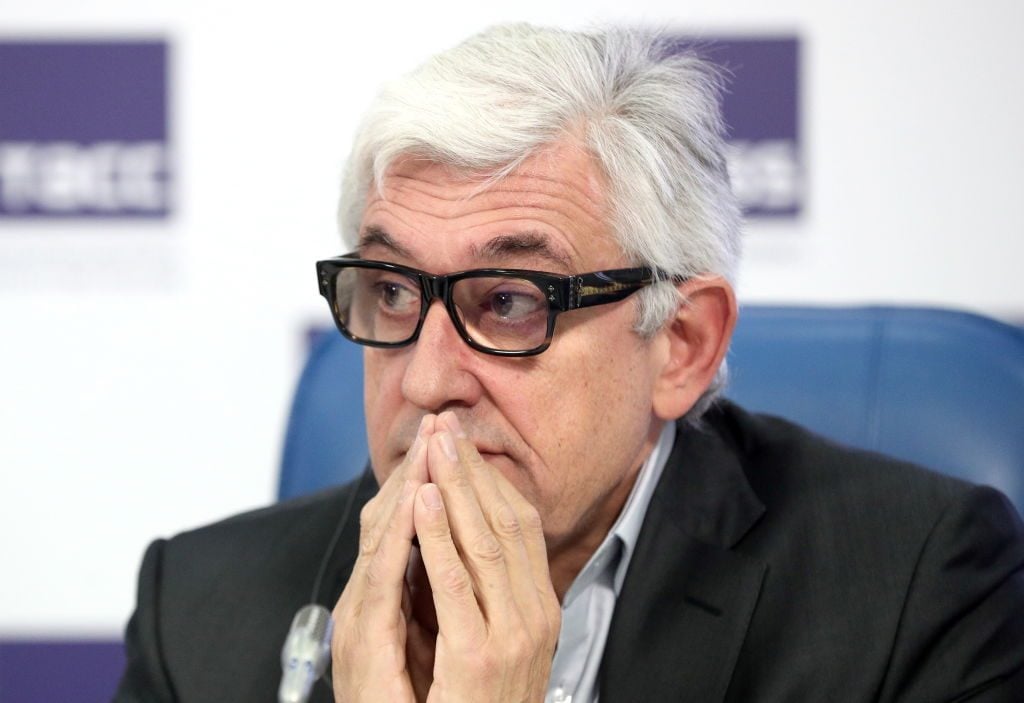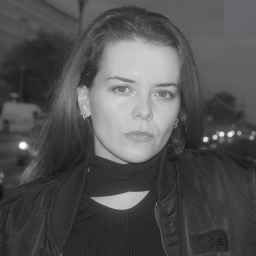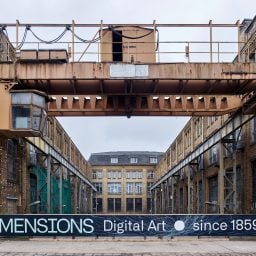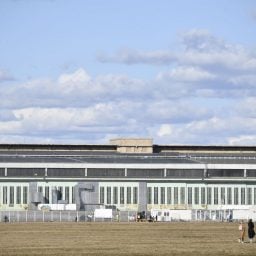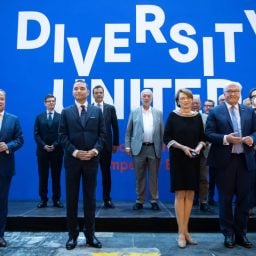A group of prominent art world figures are speaking out against the Kunsthalle Berlin, saying that they are “alarmed” by both the politics and funding of the new space, which opened last month in the historic Tempelhof Airport. The uproar comes as the latest development in a storm of controversy that has gripped the art world in the German capital.
At the center of the outrage is the cultural consultant Walter Smerling. The Bonn-based founder has been accused by members of the Berlin artistic community of straddling an unethical line between private foundation and public entity with his Stiftung Kunst und Kultur e V. (Foundation for Art and Culture), as well as having opaque ties to business and political figures.
In addition to a private backer, the project at Tempelhof is being subsidized with funds from the cultural senate to the tune of around €2.4 million, according to a German media report. Critics have decried the Berlin exhibition hall for gating off one of the few remaining public spaces in a rapidly gentrifying city.
This week, the art platform e-flux published the open letter addressed to public officials at the state and federal level, penned by artist Hito Steyerl, critic Jörg Heiser, and artist Clemens von Wedemeyer. “Berlin and its officials have allowed themselves to be instrumentalized by private associations, companies, and individuals around the ‘cultural manager’ Walter Smerling,” they allege.
At the time of the publication of this article, the letter has gained more than 650 signatures. Notable names include Gabriele Horn, the director of the Berlin Biennale; Yilmaz Dziewior, director of the Ludwig Museum; Krist Gruijthuijsen, director of KW Institute for Contemporary Art; and Kader Attia, artist and curator of the Berlin Biennale that opens in June.
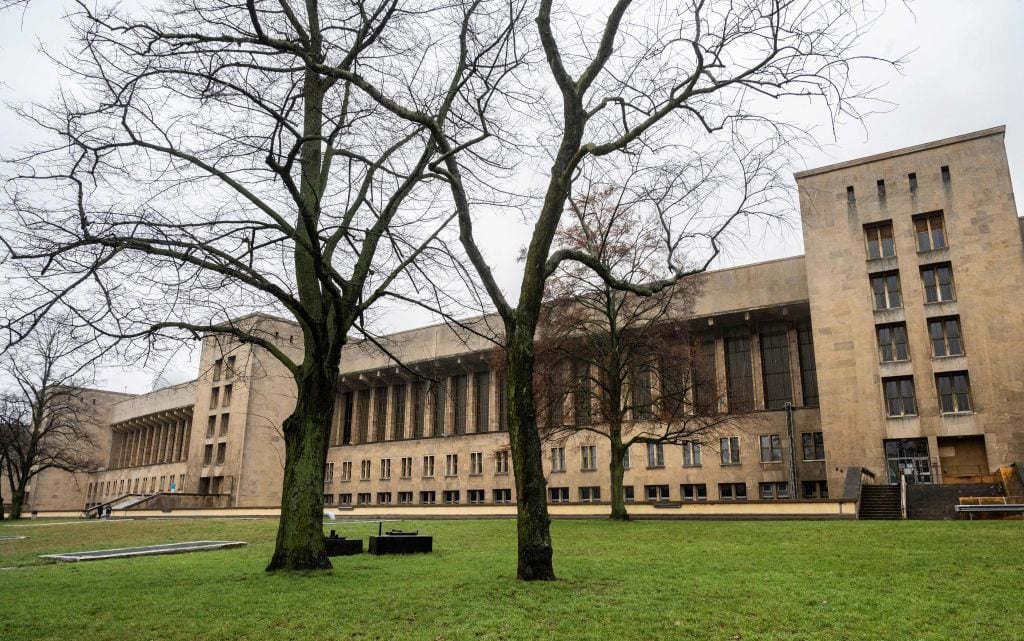
A photo taken on February 3, 2022 shows an exterior view of Berlin’s former Tempelhof airport hangar housing the new “Kunsthalle Berlin,” Photo: John MacDougall/AFP via Getty Images.
‘Kunsthalle Berlin’
Kunsthalle Berlin officially launched at the end of January with a survey exhibition by French artist Bernard Venet (on view until May 30) and it has been under continuous fire since. Critics, led at first by artist Candice Breitz and photographer Tobias Zielony, called for a boycott of Kunsthalle Berlin over social media on the eve of the show’s opening.
Showing a blue-chip artist like Venet, represented by prominent Berlin gallery König, sounded off to critics, who claimed the project was a selling platform. In an interview with local press, Smerling justified himself: “It takes an intelligent combination of culture and business to be able to show art publicly.”
The signatories of e-flux letter ask that the lease to Tempelhof’s hangars be terminated immediately and that public funding of the Kunsthalle Berlin be discontinued. The group is also demanding that the Berlin Senate disclose the details of its agreement with Smerling’s private foundation. (Smerling and the Berlin senate for culture did not respond to requests for comment about their reaction to the open letter.)
The new institution’s critics also take issue with naming of the institution a “kunsthalle,” which takes up a long and prestigious history of nonprofit kunstvereins in Germany.
“If the founding of a serious Kunsthalle Berlin worthy of the name is preempted by arbitrary self-designation, this indicates a need for action,” write the authors. “We therefore call for ethical guidelines to be developed, with regard to the relationship between the public sector and private interests or sponsors, in order to prevent such instrumentalizations from happening in the first place.”
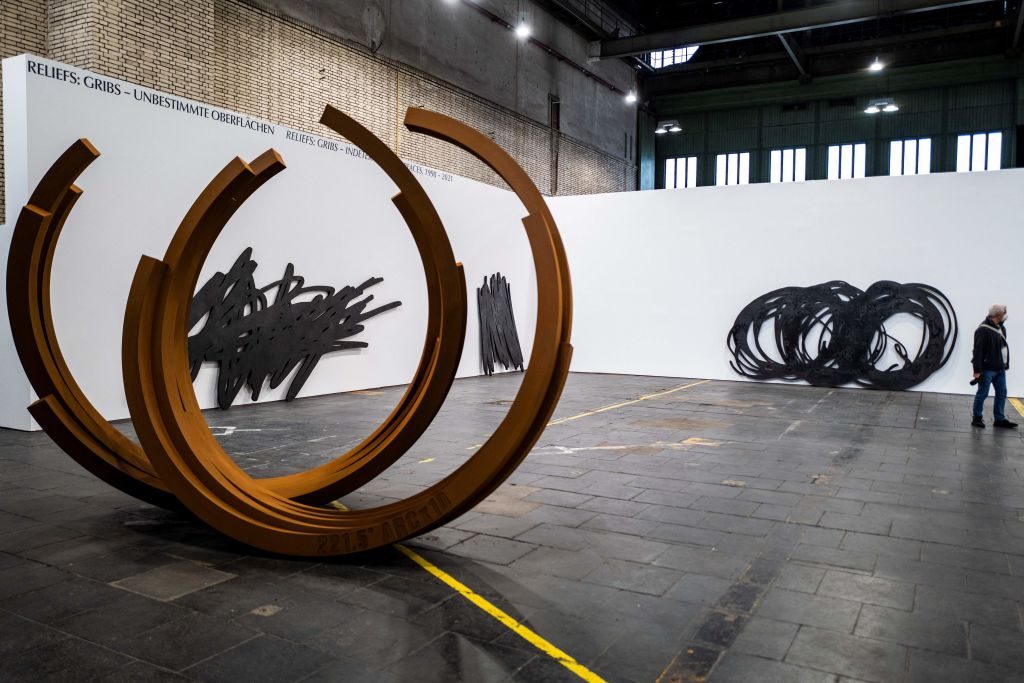
“Bernar Venet, 1961-2021: 60 years of Sculpture, Painting and Performance” at the “Kunsthalle Berlin” at former Tempelhof airport. Photo by John MacDougallAFP via Getty Images
The Smerling System
Smerling may be new in town, but he is a well-known since many years around in the German art world. Yet this is not the first time he has been criticized for opaquely mixing private and public dealings in cultural projects, a pattern that columnist Niklas Maas dubbed the “Smerling System” in a recent article for FAZ.
Last year, he first used Tempelhof Airport for a touring, large-scale group exhibition called “Diversity United,” billed as a celebration of Europe as a “union of diversity.” That show included many artists from Berlin and Europe—though neither the artist list nor its all-white advisory board were actually particularly diverse. Critics pointed out the incongruity of having Vladimir Putin as one of the three official patrons of the show, alongside French president Emmanuel Macron and German president Frank-Walter Steinmeier. Putin has recently ratified into law that he can remain president until he is 83 and has jailed his opposition, Alexei Navalny.
Since concerns were publicly raised about that show, thirteen artists, including Mona Hatoum and Yael Bartana, have pulled their name from it. It toured from Berlin to Moscow, and is set to end its run in Paris.
The new open letter also places the pushback to Kunsthalle Berlin in the context of the current political crisis gripping Europe, alleging that Smerling’s institution is “actively engaging in misguided ‘cultural diplomacy’ in the midst of a geopolitical crisis of the highest magnitude—the smoldering Russia-Ukraine conflict.”
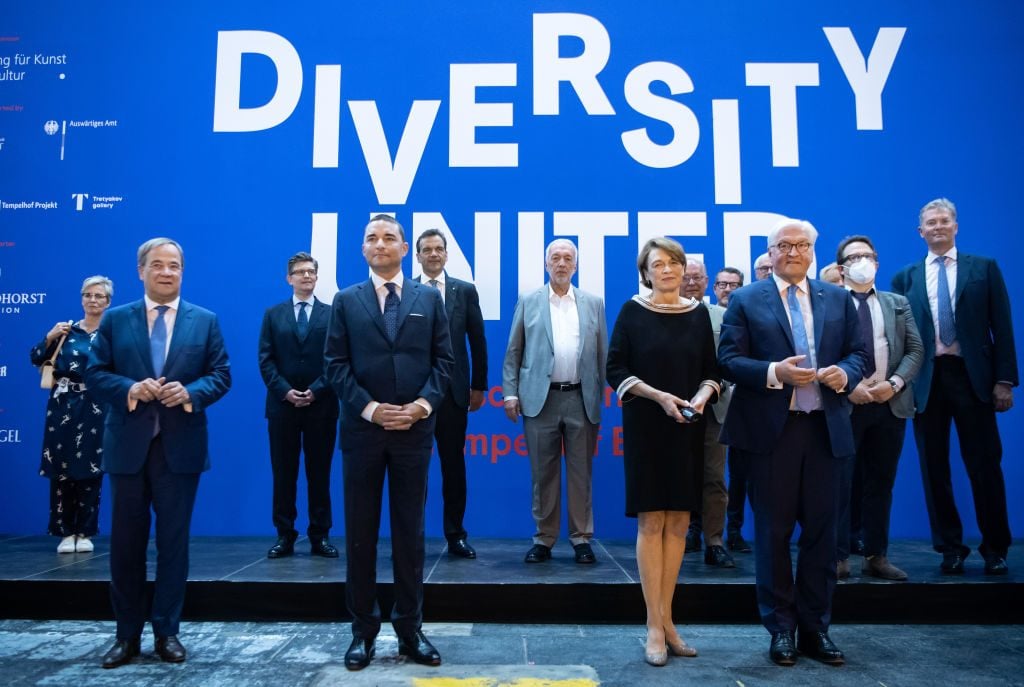
German president Frank-Walter Steinmeier, his wife Elke Büdenbender stand next to 2021 Chancelor candidate and minister of North Rhine-Westphalia Armin Laschet (far left) and financier and exhibition sponsor Lars Windhorst (second from left) at the opening of the “Diversity United” exhibition. Photo: Bernd von Jutrczenka/picture alliance via Getty Images.
Even at the time of the protests over “Diversity United” last fall, as Artnet News reported, Smerling had his eye on a long-term stay. He told Artnet News last summer that he had made a “proposal” to the city to occupy Tempelhof long term, but the details were then unclear.
Now, Berlin has found out what the shape of the deal was, helping to ignite the new round of protest represented by the e-flux letter. The Berlin senate agreed to let Smerling run an exhibition space for two years while agreeing to subsidize 50 percent of the monthly operating costs, giving €2.4 million in taxpayer money.
“The use of public resources for private interests—by enhancing the reputation of authoritarian regimes and untransparent corporate networks that are repeatedly involved in scandals—is structurally and politically scandalous,” the e-flux letter states.
In an earlier comment to Artnet News, Smerling said the boycott against the Kunsthalle was “not an appropriate response” and that “artists boycotting other artists is certainly not something we want.” He has also signaled a desire to have a discussion with the local art scene: “I invite everyone who is seriously interested to see the exhibition and engage in constructive dialogue with us.”
